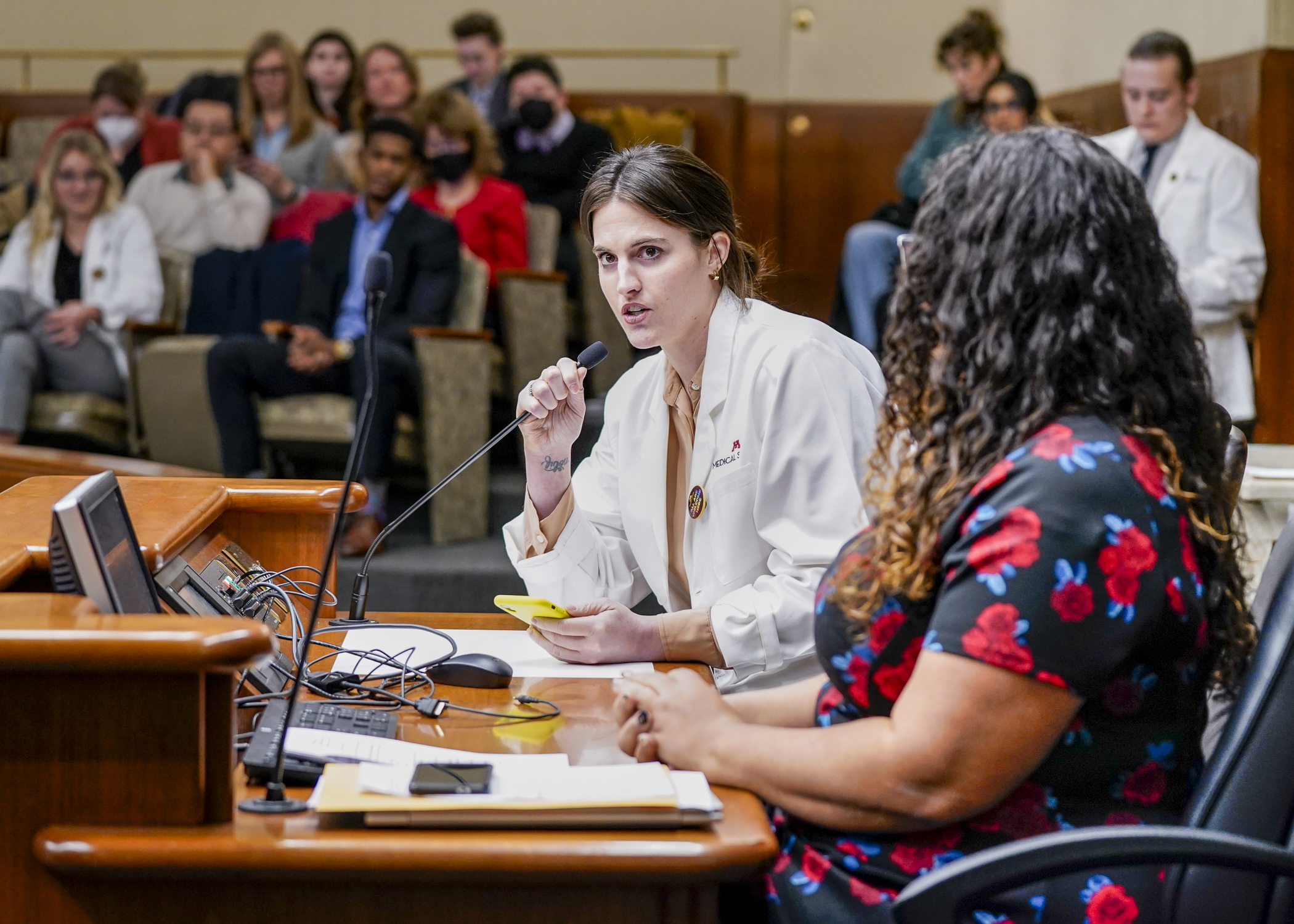Ban on conversion therapy moves forward on party-line committee vote

Twenty states and over 100 municipalities have already banned conversion therapy for minors.
Minnesota could be next.
Sponsored by Rep. Athena Hollins (DFL-St. Paul), HF16 would ban conversion therapy for children and vulnerable adults.
“Conversion therapy is not therapy at all. It has been denounced by every mainstream medical and mental health association, including the American Medical Association, the American Psychological Association and the American Academy of Pediatrics,” said Hollins, calling the bill “long overdue.”
The House Human Services Policy Committee approved the bill, as amended, Wednesday on a 7-5 party-line vote, referring it to House Health Finance and Policy Committee.
The proposed legislation would ban fraudulent or deceptive advertising practices, including guarantees of changing sexual orientation or gender identity, and representations of homosexuality as a mental disease, disorder or illness.
As defined in the bill, conversion therapy refers to any practice by a mental health practitioner or professional that aims to change an individual's sexual orientation or gender identity.
An executive order currently restricts conversion therapy. In 2021, Gov. Tim Walz ensured both insurance companies and state health care plans do not cover it.
Hollins offered the same proposal last year. It cleared a House division, but went no further.
Former representative Hunter Cantrell who proposed such a ban in 2019 called conversion therapy “an arcane form of torture that has no place in the pursuit of health.”
Sydney Lo, a University of Minnesota Medical School student, expressed concern over heightened suicide rates for queer youth who experienced conversion therapy. She said that conversion therapy is unscientific, unsupported by the medical community and lacks peer reviewed evidence finding it effective.
Opponents say the bill would violate their First Amendment rights and that eliminating the option of conversion therapy eliminates freedom.
Dr. David Kirby called the ban unnecessary for mental health providers who are already overseen and held accountable by their own governing bodies.
“It’s like applying suntan lotion when you’re already wearing a long sleeve shirt,” said Kirby, a clinical psychologist.
An amendment to prohibit gender transition medical services for children under 18 and vulnerable adults stirred disagreement and, ultimately, was not adopted.
Offering the amendment, Rep. Debra Kiel (R-Crookston) said it was intended to protect children and allow them to decide who they are.
“Political efforts to remove life-saving health care access for vulnerable communities must be opposed,” said Rep. Leigh Finke (DFL-St. Paul). “I am grateful to be trans and I will oppose any effort to erase my community.”
Related Articles
Search Session Daily
Advanced Search OptionsPriority Dailies
Speaker Emerita Melissa Hortman, husband killed in attack
By HPIS Staff House Speaker Emerita Melissa Hortman (DFL-Brooklyn Park) and her husband, Mark, were fatally shot in their home early Saturday morning.
Gov. Tim Walz announced the news dur...
House Speaker Emerita Melissa Hortman (DFL-Brooklyn Park) and her husband, Mark, were fatally shot in their home early Saturday morning.
Gov. Tim Walz announced the news dur...
Lawmakers deliver budget bills to governor's desk in one-day special session
By Mike Cook About that talk of needing all 21 hours left in a legislative day to complete a special session?
House members were more than up to the challenge Monday. Beginning at 10 a.m...
About that talk of needing all 21 hours left in a legislative day to complete a special session?
House members were more than up to the challenge Monday. Beginning at 10 a.m...